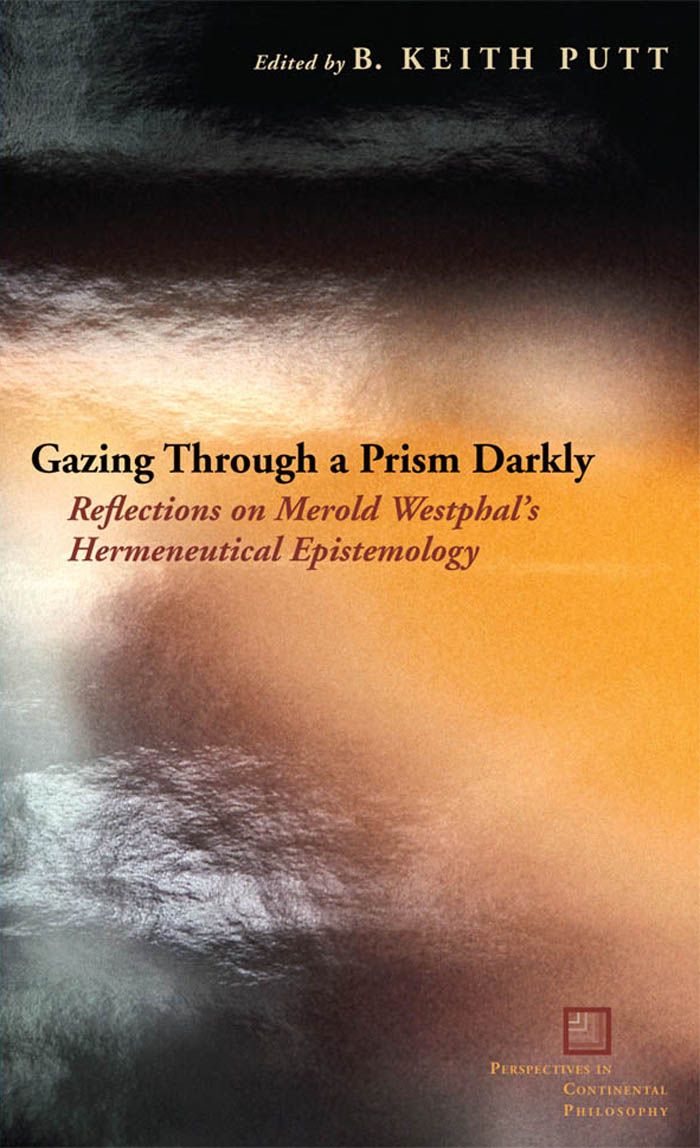Gazing Through a Prism Darkly
Reflections on Merold Westphal's Hermeneutical Epistemology

This book can be opened with

Merold Westphal has been in the foremost ranks of philosophers who proclaim a new postsecular philosophy. By articulating an epistemology sensitive to the realities of cognitive finitude and moral weakness, he defends a wisdom that begins in both humility and commitment, one that always confesses that human beings can encounter meaning and truth only as human beings, never as gods.
The present volume focuses on this wisdom of humility that characterizes Westphal's thought and explores how that wisdom, expressed through the redemptive dynamic of doubt, can contribute to developing a postsecular apologetic for faith.
This book can function both as an accessible introduction to Westphal for those who have not read him extensively and also as an informed critical appreciation and extension of his work for those who are more experienced readers.
As a volume of collected essays on Merold Westphal written by his longtime colleagues and interlocutors, this book is long overdue. Westphal has been one of the most significant voices in the development of continental philosophy of religion, and this volume successfully introduces the reader to both his range as a thinker and his consistent point of view that has articulated a distinctly postsecular philosophical theology. The editor's concluding conversation with Westphal is as insightful and broad in its scope as readers of Westphal have come to expect. Not only a great treasure trove of contemporary philosophical and theological elaboration, this book is also a great work of love.
Useful, not only for those focusing on Westphal's own work, but also for those who are looking for new and exciting scholarship in the thinking of Kierkegaard, Levinas, Derrida, Hegel, and Marion.
Merold Westphal's life-work spans Hegel's views on love and community
and Kierkegaard's critique of these, Nietzsche's revaluing of values
and Levinas' valorization of a primal ethical obligation to the other
so deep it verges on the religious. Westphal is one of the most
wide-ranging and insightful minds at work in philosophy of religion
over the last quarter century. Keith Putt's introduction and final
interview frame essays from an outstanding assembly of contemporary
scholars, accomplished in their own right, marshaled here to
critically trace Westphal's emergence as a continental philosopher of
religion and theology of the very first order.
A unique contribution to knowledge in this field.
Westphal occupies a unique and important position in the contemporary debates about God and religion.
Putt’s Gazing Through a Prism Darkly shines a beam of light on the rich work of Merold Westphal. The book illuminates Westphal’s brilliant ability to cross the boundaries between liberal and conservative theology, analytical and continental philosophy, and Catholic and Protestant ecclesiology. Indeed Westphal’s thought merits such a multidimensional anthology. It is long overdue.

